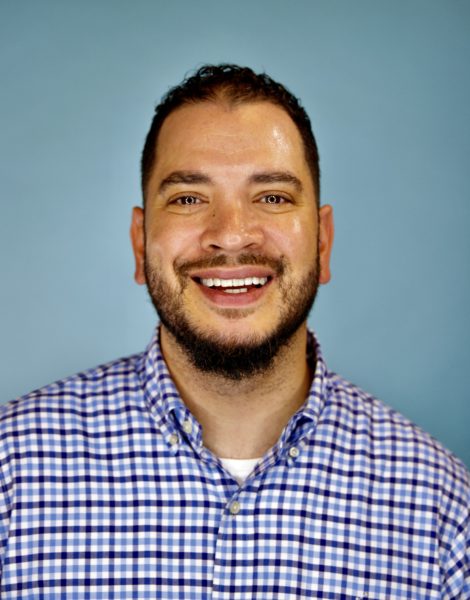Remake Learning’s four Working Groups are the heartbeat of the network. Each group is organized around a specific topic and members opt-in to participate in deep exploration, ideation, design, and implementation of efforts that ignite more engaging, relevant, and equitable learning related to that topic.
The Pittsburgh Regional STE(A)M Ecosystem is one of the network’s longest-standing working groups. Part of the national STEM Ecosystems cohort, the working group cultivates diverse and equitable high-quality STEM and STEAM learning opportunities for all students in our region with an eye toward building a scientifically-informed citizenry, and creative, prosperous, and resilient population.
In March, Remake Learning welcomed Kirk Holbrook to lead the Pittsburgh Regional STE(A)M Ecosystem working group. Kirk’s engagement with Remake Learning goes back more than a decade. In that time, he has worn many hats: network member, community partner, project leader, and more. Now as a part of the network’s leadership team, we asked Kirk to tell us more about where he’s coming from and where he sees the working group headed.
Where do we know you from? How have you plugged into the network in the past?
I have been an advocate for equity in education and access to opportunity for Black communities in Pittsburgh and Allegheny county for over 20 years. I worked in and led community-based after-school programs for over a decade, before moving on to focusing on educational advocacy both as a community organizer and legislative aid in state government. Mostly recently, I was director of the University of Pittsburgh’s Community Engagement Center in the Hill District. Currently, I am the Program Director of Gizmology, a racial equity initiative embedded within Deeplocal, centered around an apprenticeship program for Black Pittsburgh in creative technology.
I have been connected with Remake Learning for over a decade, and have participated in convenings as a member of the STE(A)M Ecosystem, served as a Remake Learning Ambassador, and have attended national conferences with cohort members from Pittsburgh. I also partnered with Remake Learning and the University of Pittsburgh, alongside a dozen or more partners from the Hill District STEAM ecosystem, to build and implement a plan for a STEAM Studio at the Community Engagement Center in the Hill District.
What inspired you to work in STEAM?
I was inspired to work in STEAM during my time running after-school programs in Homewood and the Hill District. One of my primary focal points was changing the ways in which children learned; knowing that the innate potential to achieve greatness was at the fingertips of our youth. To me it was clear–gone were the traditional ways of lecture and treating all students as widgets without room for play and innovation in the classroom. And as time moved on, not only was I attracted to the necessities of new pedagogical techniques in how youth were learning—but I also began to develop an affinity for the growing global impact of combining new ways of teaching and learning with the acquisition of science, technological, engineering, arts and mathematical skill sets.
How will your personal and professional experiences guide you in this new role?
I have a wealth of experiences to draw upon in my new role as the STE(A)M Ecosystem lead for Remake Learning. I organized my first community forum 15 years ago in Homewood focused on the education of Black youth, built coalitions celebrating academic achievement and counteracting educational inequities throughout the city, led community planning committees in Hazelwood and the Hill District, and built a coalition of stakeholders at the community and university level to support STEAM initiatives. My current work at Deeplocal has furthered my understanding of the core skill-sets needed for success in STEM fields, and I have developed a methodology for building partnerships to achieve maximum impact. Throughout all of these experiences I have found this to be true; the key to building successful initiatives is working together across perceived divisions and boundaries to find commonality for a collective vision for the future.
What do you hope to accomplish as an ecosystem lead?
As the STEAM Ecosystem Lead for Remake Learning, I will bring a wealth of experience and skills to the position. I will both build off the successes of the past and also hone in where we need to move in the future to build the strongest network possible. I will work tirelessly to ensure that there is an equitable approach to highlight STEAM work in the region and will intentionally focus on bringing in a more diverse, community-focused membership that will accentuate the strong partnership base that is already in place
What would you like the network to know about you?
I would like the network to know that I am eager to get to work to build impactful coalitions across our region. I look forward to uncovering a collective vision for our work in the coming year and beyond–I am honored to be the new STE(A)M Ecosystem lead!
